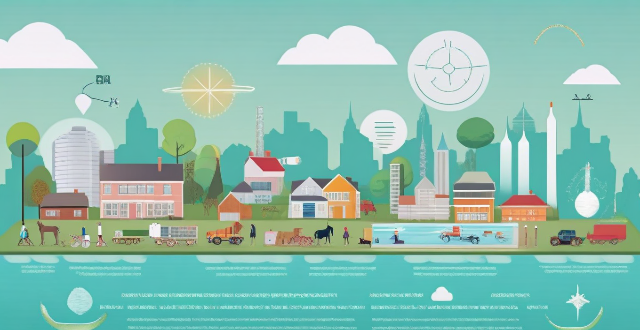Climate information sharing is vital for developing countries to address climate change challenges, offering benefits such as improved agricultural planning, disaster risk reduction, public health protection, economic development, and informed policy-making. By utilizing this data, these nations can adapt to environmental changes, build resilience, and ensure sustainable growth.

How Can Developing Countries Benefit from Climate Information Sharing?
Introduction
Climate information sharing is a crucial aspect of global efforts to address the challenges posed by climate change. For developing countries, access to accurate and timely climate data can significantly enhance their ability to adapt to changing environmental conditions and build resilience against future risks. Here's how these nations can benefit:
Benefits of Climate Information Sharing for Developing Countries
Improved Agricultural Planning
- Crop Variety Selection: Understanding local climate patterns helps farmers choose crops that are best suited to their region's weather conditions.
- Planting Schedules: Accurate forecasts allow for optimal planting and harvesting times, reducing the risk of crop failure due to extreme weather events.
- Pest and Disease Management: Climate data can predict the likelihood of pest outbreaks or diseases, enabling preventive measures to be taken in advance.
Disaster Risk Reduction
- Early Warning Systems: Timely warnings about impending natural disasters such as hurricanes, floods, or droughts enable better preparedness and response strategies.
- Infrastructure Planning: Climate information guides the construction of resilient infrastructure that can withstand extreme weather conditions.
- Emergency Response Coordination: Sharing real-time climate data supports coordination between local authorities and international aid organizations during disaster relief efforts.
Public Health Protection
- Disease Surveillance: Changes in temperature and precipitation patterns affect the spread of vector-borne diseases like malaria and dengue fever.
- Water Quality Management: Monitoring rainfall and other climate factors helps manage water resources effectively, ensuring clean drinking water.
- Heat Stress Mitigation: With projections of hotter days, public health policies can be adapted to protect vulnerable populations from heat-related illnesses.
Economic Development
- Tourism Planning: Understanding climatic trends helps develop sustainable tourism strategies that consider seasonal variations in weather.
- Energy Management: Predictable weather patterns aid in planning energy consumption and production, especially for renewable sources like wind and solar.
- Investment Attraction: Reliable climate data provides investors with confidence in long-term economic stability, attracting more foreign direct investment.
Policy and Research
- Adaptation Policies: Governments can create informed policies based on historical and projected climate data to mitigate adverse effects.
- Research Collaboration: International research collaborations can use shared data to develop new technologies and adaptation strategies.
- Capacity Building: Developing countries can leverage shared knowledge to build local capacity for understanding and using climate information effectively.
Conclusion
The benefits of climate information sharing for developing countries are multifaceted and critical for building a sustainable future. By leveraging this valuable resource, these nations can enhance their agricultural productivity, reduce disaster risks, protect public health, foster economic growth, and inform policy decisions. As the impacts of climate change continue to unfold, the importance of sharing accurate and reliable climate information will only increase.